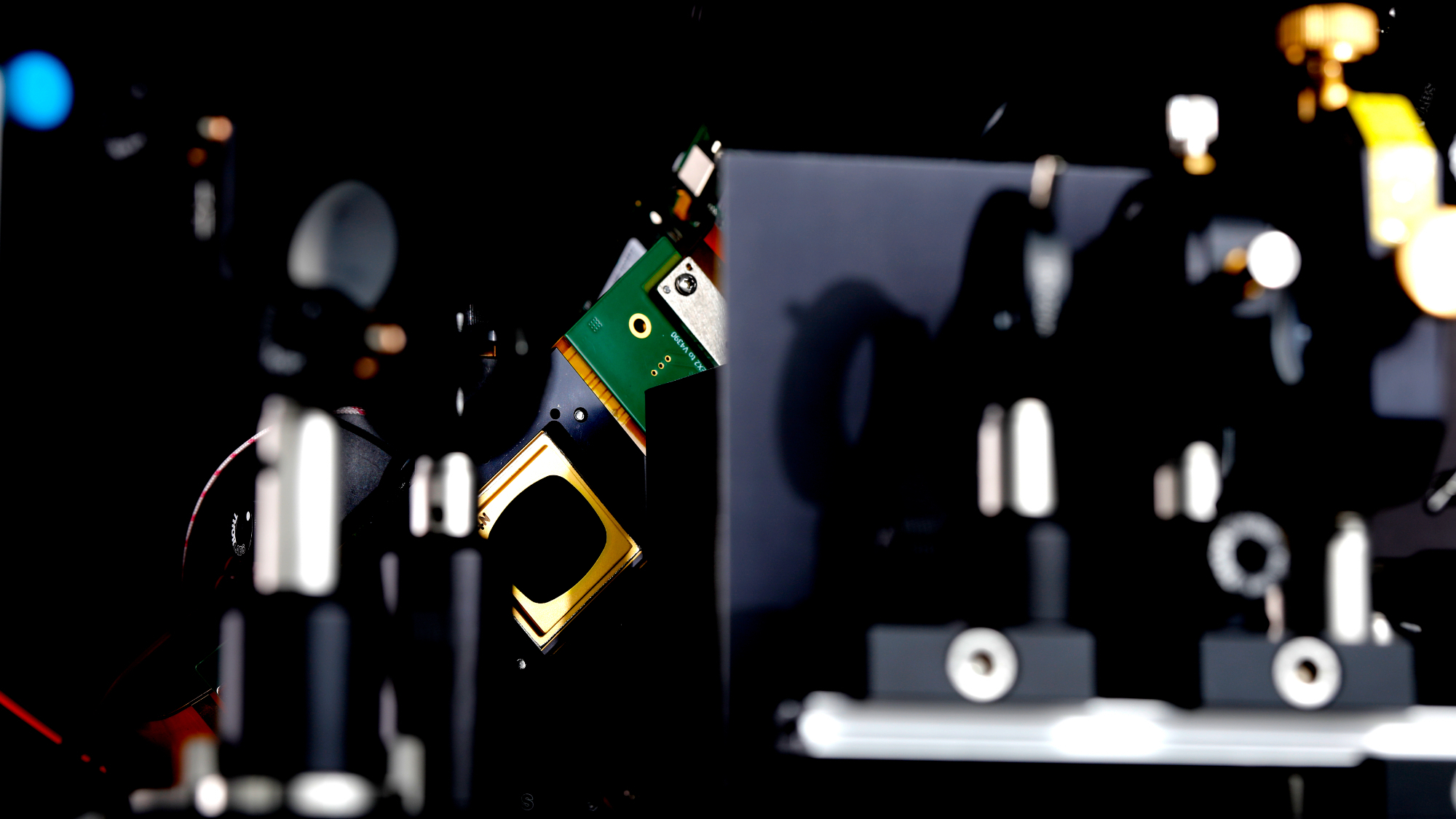Western Digital is investing in ceramic hard drive pioneer Cerabyte — company's nearly indestructible storage device gets a key backer
One step closer to the yottabyte

Ground-breaking ceramic-based data storage outfit Cerabyte has today announced it has received strategic investment from Western Digital, a move it says will accelerate the development of its ceramic data storage tech.
Cerabyte is a German company seeking to revolutionize data storage. It uses ceramic-on-glass material that the company says is good for 5,000 years of data storage.
Not only is Cerabyte's revolutionary tech designed to be essentially permanent, but it could also pave the way for data storage capacities on a scale hitherto unfathomable – Cerabyte says its next-generation active archives combine multiple storage technologies as we head towards the Yottabite era.
Shantnu Sharma, Chief Strategy and Corporate Development Officer, Western Digital, said the company was "looking forward to working with Cerabyte to formulate a technology partnership for the commercialization of this technology," and said its investment in Cerabyte aligns with the company's priority of extending the reach of its products into long-term data storage use cases.
Cerabyte co-founder and CEO Christian Pflaum said, "We are excited to be working with Western Digital to define a technology partnership, fueling our ability to deliver accessible permanent storage solutions at scale.”
Cerabyte made headlines earlier this month by boiling its storage devices in salt water and grilling them in an oven to prove their resilience. The company says its ceramic storage is safe from heat and fire, moisture and water, UV light, radiation, corrosion, and even EMP bursts.
Long-term, Cerabyte hopes to reduce storage costs to less than $1 per TB by 2030, a mind-bending price compared to the current crop of best hard drives.
Stay On the Cutting Edge: Get the Tom's Hardware Newsletter
Get Tom's Hardware's best news and in-depth reviews, straight to your inbox.
Neither Cerabyte nor Western Digital has proposed a more concrete timeframe for the launch of its products, simply stating today's newly-minted partnership will "accelerate" development.
Follow Tom's Hardware on Google News to get our up-to-date news, analysis, and reviews in your feeds. Make sure to click the Follow button.

Stephen is Tom's Hardware's News Editor with almost a decade of industry experience covering technology, having worked at TechRadar, iMore, and even Apple over the years. He has covered the world of consumer tech from nearly every angle, including supply chain rumors, patents, and litigation, and more. When he's not at work, he loves reading about history and playing video games.
-
DS426 Strategic partnership? Seems like two good of a deal for WD to not just snap them up in an acquisition. That's just usually how it goes in the business world...Reply
Or maybe Seagate will jump in and do that?
5000 years for archiving data at the scale of these volumes of data, wow. Finally some real innovation to the HDD. -
bit_user Reply
Imagine a storage technology with such high-density that, even though it's write-only, you can use it like read/write.The article said:Not only is Cerabyte's revolutionary tech designed to be essentially permanent, but it could also pave the way for data storage capacities on a scale hitherto unfathomable – Cerabyte says its next-generation active archives combine multiple storage technologies as we head towards the Yottabite era.
I think there was a CD-R filesystem like that. Where it essentially worked like a journaling filesystem. So, when you "delete" a file, all it does is adds some metadata saying the file is deleted, but it can't actually go back and wipe it away. -
jg.millirem Reply
Since these ceramic drives are so tough, how does data ever get wiped or destroyed, by users who don’t want that data to exist anymore? At least a CD is fairly easy to destroy.bit_user said:Imagine a storage technology with such high-density that, even though it's write-only, you can use it like read/write.
I think there was a CD-R filesystem like that. Where it essentially worked like a journaling filesystem. So, when you "delete" a file, all it does is adds some metadata saying the file is deleted, but it can't actually go back and wipe it away. -
bit_user Reply
When you want to destroy the entire media, I'm sure you can simply crush it. That would be enough to prevent anyone other than world-class spy agencies from reading anything off of it.jg.millirem said:Since these ceramic drives are so tough, how does data ever get wiped or destroyed, by users who don’t want that data to exist anymore? At least a CD is fairly easy to destroy. -
spunner5 Destruction is easy for any storage product, whether it be a flash drive, CD/DVD/Blu-Ray, Hard Disk, or tape. Many vendors will securely shred your storage product into pieces, for a price, of course. Working with HDDs and tape for decades, it's remarkable what a hammer and/or drill can do to a hard disk, especially to tape, rendering it useless. You just need to know where to damage the PCB and how to do it through the media itself. If security is a genuine concern, encrypting the data on the media is a requirement, as without the original key, the data is irretrievably lost.Reply
WORM has been around for a long time. The concept of writing to LTO tape, similar to a random disk drive, has been around for a while, known as Linear Tape File System (LTFS). The software was either created by the manufacturer of the drive mechanism (HP or IBM) or by a third-party developer (for a cost & features). As stated, the data itself isn't deleted, so the space is lost until you migrate it to a newer generation (i.e., LTO-6 to LTO-9), or a new tape, where only the current data is transferred, thus regaining that lost space on the prior tape.
It's good to see the HDD space continue to move forward, but Cerabyte's technology is nothing you'll see in your home system, as it's directly aimed at the hyperscalers who are 'the cloud'.